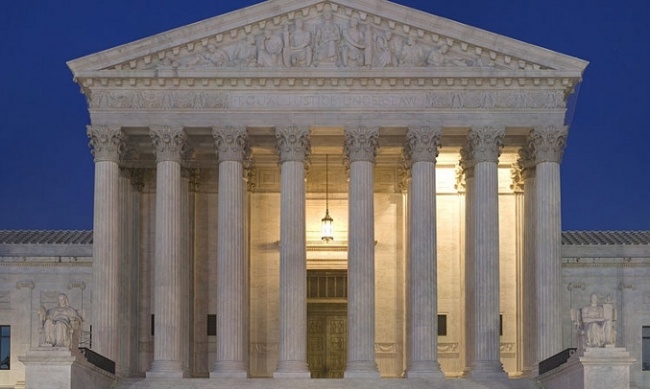Rolling for Initiative is a weekly column by Scott Thorne, PhD, owner of Castle Perilous Games & Books in Carbondale, Illinois and instructor in marketing at Southeast Missouri State University. This week, Thorne looks at the recent Supreme Court decision allowing states to require online retailers to collect sales tax.
In case you missed it, the Supreme Court decided South Dakota vs. Wayfair in favor of South Dakota last week. This was the case revisiting the 1992 SCOTUS ruling in Quill Corp vs. North Dakota establishing that companies had to have a physical presence in a state in order for the state to compel them to collect sales tax from their customers. For convenience, States that collect a sales tax on purchases made within the state require sellers to acquire a license, collect sales tax and remit it to the state. Items on which sales tax is collected can vary widely. Here in Illinois, for example, sales tax is not required to be paid for the purchase of services or newspapers. Meanwhile, across the river in Missouri, unprepared food is not subject to sales tax but once you cook and serve it, it is (similarly here in in Illinois, except that the uncooked food is still subject to about a 1% sales tax).
What the Quill Corp ruling did was put the onus of remitting sales tax onto the customer. By law, at least in Illinois and I would imagine in other states where sales tax is collected, customers are supposed to remit any sales tax owed on purchases along with their annual income tax payment to the state. Yes, customers are supposed to keep track of all of the sales taxes they did not pay for the year and remit that amount with their annual income tax payment. There is even a line on the annual form for customers to list the amount of tax owed. Needless to say, most customers are scofflaws in this respect, much like expecting people to obey speed limits. Illinois spent a significant amount about 15 years ago reminding people to remit their sales tax on their income tax form and wound up collecting roughly the same amount the state spent on the campaign.
In a 2015 ruling on Colorado collection of sales tax, Justice Anthony Kennedy wrote an opinion inviting states to bring a case allowing the SCOTUS to revisit the Quill decision. SD Vs. Wayfair did just so when South Dakota passed a law requiring all retailers selling to customers within the state to collect and remit sales tax, whether the retailer had a presence in the state or not. Retailers selling $100,000 or less in the state or aggregating 200 or fewer sales per year were exempt from the law, which was designed as a direct challenge to the Quill Corp. ruling. South Dakota sued several online retailers for non-collection of sales tax under the new law and three decided to fight: Wayfair, Overstock.com and Newegg. The South Dakota Supreme Court agreed with the retailers that Quill remained the controlling authority so South Dakota moved the suit onto the SCOTUS, which agreed to hear the lawsuit.
In a 5-4 ruling, the Court overturned Quill. In his majority opinion Justice Kennedy said that the Quill ruling served as a "judicially approved tax shelter" and that "This Court should not prevent states from collecting lawful taxes through a physical presence rule that can be satisfied only if there is an employee or a building in the state" and further cited marketing materials from Wayfair: "Its advertising seeks to create an image of beautiful, peaceful homes, but it also says that 'one of the best things about buying through Wayfair is that we do not have to charge sales tax.' What Wayfair ignores in its subtle offer to assist in tax evasion is that creating a dream home assumes solvent state and local governments."
What happens now? States will probably start passing laws ignoring physical presence and requiring all businesses selling within their borders to collect applicable sales tax, likely setting a sales amount floor, much like the SD law, exempting small online retailers from the requirement. Larger retailers will have to incorporate sales tax collection and remittance into their shopping cart software, as Amazon has already done. Barring action from Congress, which arguably could act under the Commerce Clause of the Constitution, we will likely see a situation similar to that of insurance, with every state setting its own laws, a nightmare for retailers but a boon for software developers.
The opinions expressed in this column are solely those of the writer, and do not necessarily reflect the views of the editorial staff of ICv2.com.

Column by Scott Thorne
Posted by Scott Thorne on June 25, 2018 @ 1:53 am CT



